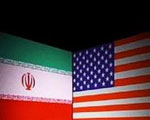 Reuters: The Obama administration, still grappling with how to punish a nuclear-ambitious Iran, is focusing on making countries cut purchases of Iranian oil, rather than allowing them to avoid U.S. sanctions simply by winning price cuts.
Reuters: The Obama administration, still grappling with how to punish a nuclear-ambitious Iran, is focusing on making countries cut purchases of Iranian oil, rather than allowing them to avoid U.S. sanctions simply by winning price cuts.
By Rachelle Younglai
 WASHINGTON (Reuters) – The Obama administration, still grappling with how to punish a nuclear-ambitious Iran, is focusing on making countries cut purchases of Iranian oil, rather than allowing them to avoid U.S. sanctions simply by winning price cuts.
WASHINGTON (Reuters) – The Obama administration, still grappling with how to punish a nuclear-ambitious Iran, is focusing on making countries cut purchases of Iranian oil, rather than allowing them to avoid U.S. sanctions simply by winning price cuts.
The White House intends to play it tough on implementing new Iran sanctions, and officials said they will not waive them on national-security grounds. But they also said the administration was so far getting “enough indications” of reduced imports.
Since President Barack Obama signed the Iranian sanctions package late last year, the administration has struggled with how to implement the rules without driving oil prices higher and hurting the fragile U.S. economy in an election year.
The administration is mindful that Congress could seek new legislation to close loopholes on sanctions if lawmakers do not see broad cooperation on punishing Iran for what the United States says is a program to develop a nuclear-weapon capability. Iran maintains its nuclear program is for peaceful purposes.
U.S. SEEING SIGNS COUNTRIES CURTAILING PURCHASES
The new U.S. law prohibits institutions from dealing with Iran’s central bank, which acts as the clearinghouse for OPEC’s second-largest oil exporter. That essentially would force countries and their institutions to choose between working with Iran and having access to the U.S. financial system.
However, the sanctions give Obama the authority to exempt countries and their institutions if he determines the country has “significantly reduced” its volume of crude oil purchases.
Now the administration is trying to define significant reduction, with senior officials from the Treasury and State Departments traveling to Japan and South Korea this week to discuss their ideas.
Among its options, the administration has considered encouraging countries to impose import tariffs on Iranian oil to curtail Iran’s revenues, sources familiar with the administration’s thinking said.
U.S. officials also considered defining significant reduction in terms of a price cut in the total revenues paid to Iran, the sources said. That would have allowed countries to win exemptions from the sanctions if they negotiated lower prices for the oil.
Both approaches would have helped starve Iran of oil revenues while allowing it to continue selling to China, India, Japan, South Korea, Turkey and other countries.
The European Union, which buys about a fifth of Iran’s oil exports, is set to impose an import ban within months, while Japan has pledged this month to cut purchases. But India and China, which buy about a third of the OPEC member’s exports, have resisted pressure to comply.
The top priority for the White House is pushing countries to reduce the volume of oil they buy, even though a number of ways to determine whether a country has reduced its purchases have been considered, according to an Obama administration official.
“Treasury may have been thinking of price reductions internally at one stage, but that is not on the table anymore,” said the administration official. “The administration is getting enough indications that countries will be reducing how much oil they eventually buy from Iran.”
The law also allows Obama to waive sanctions if he determines it serves the national security of the United States. Japan, South Korea and Turkey have said they could seek waivers.
So far the administration has been telling countries it will not grant waivers. “You can ask for a waiver but you are not getting one. What we want is a reduction in purchases and in doing business with Iran,” said the official.
PRICE REDUCTION DEBATE
When the U.S. Congress was debating the sanctions bill in December, the administration proposed a price mechanism that would allow countries to escape penalties if they cut how much they paid Iran for its oil by 5 percent.
But lawmakers saw the decrease as too slight and rejected the idea.
Congress is watching how the administration will implement the law. Congressional aides say that if lawmakers are unhappy with how the administration defines “significantly reduced”, they will work on legislation directing the White House to adopt specific parameters.
“A broad interpretation would call into question the seriousness of the country’s Iran policy,” said an aide to Republican Senator Mark Kirk, one of the lawmakers who helped craft the Iranian measure.
Kirk is open to the idea of defining the reduction by requiring countries to reduce how much they pay Iran for oil by 18 percent per year, according to the aide.
A Treasury official said the administration was committed to using this law, in concert with other efforts, to reduce Iran’s access to oil revenue, “both by working with our partners to significantly reduce their imports of Iranian crude and by impeding the Central Bank of Iran’s ability to receive payment for whatever oil Iran is able to sell.”
(Reporting By Rachelle Younglai; Editing by Dale Hudson and David Gregorio)


